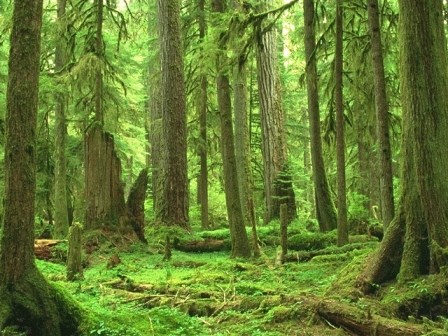The B.C. government's forest stewardship plans for Crown land are unenforceable, lack measurable results and are not producing innovative forest management, according to an investigation by the Forest Practices Board.
The board reviewed 43 stewardship plans from all regions of B.C., prepared under provincial law by tenure holders including forest companies and communities.
There has been "no improvement" in problems identified by a similar review in 2006, said Forest Practices Board chair Tim Ryan.
"We are recommending that government not renew or approve any forest stewardship plans that don't meet the standards set out in the Forest and Range Practices Act," Ryan said.
The investigation found that many of the plans cover "vast and overlapping areas of the province, and were written using legal language that makes them very difficult for public understanding or review."
The five-year plans are supposed to be approved after measurable and verifiable results and strategies are established and public input is obtained. Many have been extended without further public review and more are due for extension or renewal in the next year, the board says.
The board conducts independent investigations of Crown forest licences. Its reports and results of the latest province-wide investigation can bee found at www.bcfpb.ca
Southern B.C. to lead growth
B.C.'s economy will grow at a "modest" 2.7 per cent this year, then accelerate above three per cent as major projects in northern B.C. get going in late 2016, according to the latest forecast by Central 1 Credit Union.
Low interest rates, a low dollar and recovering demand in the U.S. will help the Vancouver and southern B.C region's export and service industries most this year, said Bryan Yu, senior economist with the trade association for B.C. credit unions. Manufacturing, tourism, TV and film and agriculture are expected to lead the way.
Slow global demand, particularly from China, is expected to dampen growth in northern B.C. and the Kootenays, where mining and resources are key drivers.
"Northern B.C. is poised to grow at a faster rate in late 2016 onwards with the start of one liquefied natural gas terminal and pipeline, the Site C dam and other major projects," Yu said.
While B.C. residents working in the oil sands are at greater risk, low oil prices are generally positive for the B.C. economy, with lower costs for businesses and consumers.
Liquor stores collect for fire fund
B.C. Liquor Stores have begun collecting donations from customers to help people evacuated and burned out by forest fires.
Loss of homes and evacuations in the Rock Creek and Oliver areas prompted the Red Cross to ask government liquor stores for help, as they did in the 2003 forest fires that affected the Okanagan and Thomson regions.
Recovering from a disaster is "usually a long and expensive journey," said Kimberley Nemrava, Red Cross provincial director for B.C. and Yukon.
Customers are asked to add donations of $2, $5 or any multiple of those to their purchases. Proceeds will be used for blankets, food and water, reuniting residents with family member and assisting with longer-term needs such as replacing equipment to return to work and helping with rent.
Since 2010, B.C. Liquor Stores have collected $1.9 million for Red Cross disaster relief efforts at home and abroad, including $208,000 earlier this year for earthquake relief in Nepal.



